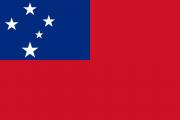On 29th August 2017, UN Women opened its Second Regular Session at the United Nations Headquarters in New York. It started with the Statements by the President of the Executive Board and the Under-Secretary General/Executive Director of UN-Women, also including presentation on the Strategic Plan, 2018 - 2021.
Samoa is a member of the Executive Board of UN Women and the Permanent Mission's Deputy Permanent Representative, Ms Miriama Betham - Malielegaoi delivered Samoa's national statement during the second regular session. Ms Malielegaoi spoke about the United Nations Human Rights Council Independent expert group that visited Samoa earlier this year. Their mandate was to assess the country’s performance on the issue of discrimination against women. a few key findings revealed that Samoa has made progress with its 10% quota for the Legislative Assembly introduced through Constitution Amendment Act 2013 is a first step forward for women’s meaningful participation in the political arena. Women in Samoa have accelerated in merit based education opportunities and have held more than 60% of leadership positions in businesses.
Success was evident but there was still work that needed to be done to ensure the development of gender equality and empowerment of all women and girls in order to realize the full enjoyment of their human rights. These included changing the mind-set of the women and their place in society as well as the inclusion of men and boys in discussions and actions that will address these issues.
Samoa reiterated the need for UN Women to respond to the requests of member states and welcomed the new Strategic Plan as it is guided by key intergovernmental norms and standards including the CEDAW, the Beijing Declaration and Platform for Action, the Program of Action of the International Conference on Population and Development as well as the review and the lessons learned from the implementation of the previous strategic plan and the QCPR.


